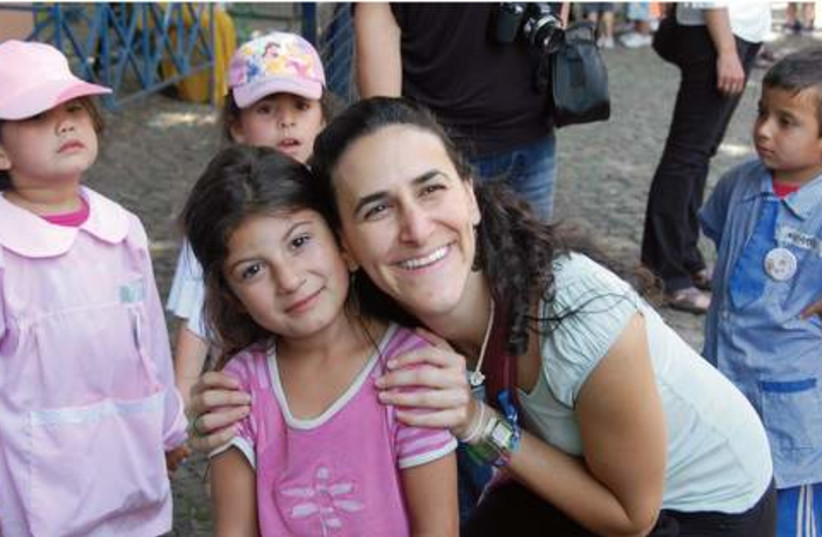A new Axios/Ipsos poll conducted with Noticias Telemundo reveals that Latino Americans hold unfavorable views of President Joe Biden and former President Donald Trump, Ipsos reported on Tuesday.
The new poll suggests that younger Latinos feel less optimistic about the future of the US. While preferences vary by issue, with Trump favoring the economy, crime, and immigration and Biden on abortion, younger Latinos express less optimism about achieving the "American Dream" and the country's future.
Ipsos' online report offers four points of interest which were inferred from the collected data. The first is that "Latinos in general have somewhat low favorability ratings of major political figures, including President Joe Biden and former President Donald Trump."
A large percentage of Latinos hold an unfavorable view of President Biden (41% favorable, 47% unfavorable,) with former President Trump seen even less favorably (32% favorable, 56% unfavorable,) according to the poll. Concerns among Latinos mostly revolve around inflation (53%,) followed by crime and gun violence (34%) and immigration (28%,) while fewer prioritize political extremism or polarization (16%.)
The second notion that can be understood from Ipsos' new poll is that "Latinos are somewhat mixed between Republicans and Democrats when it comes to issues like the economy and immigration. However, they are less likely to see Biden as a champion on key issues than the Democratic Party itself."
Latino views on immigration
Latinos generally favor the Democratic Party over the Republican Party, with higher percentages believing it represents them (36% vs. 16%,) cares about their community (34% vs. 12%,) and shares their values (32% vs. 17%.) However, while older Latinos prefer Biden over Trump, Biden's performance lags behind that of the Democratic Party overall.

For instance, while the Democratic Party has a 20 percent advantage over Republicans in representing people like them, Biden holds only a 5 percent advantage over Trump. Additionally, opinions are split on which party is good for the US economy, with Trump favored by 42% of Latinos compared to 20% for Biden.
The third thing that the poll highlights is that "Latinos are somewhat mixed when it comes to immigration." While a majority of Latino Americans believe that the US government should prioritize the improvement of border security, most "support providing a path to US citizenship," even for those who entered and/or stayed illegally.
Latino perspective on immigration reveals that roughly two-thirds support providing a path to US citizenship for undocumented people (65%) and allowing asylum for refugees fleeing Latin American crime and violence (59%,) figures largely unchanged since December 2021 (68%, 60% respectively.) However, 64% are in favor of granting the president authority to close US borders in response to excessive migration.
Although fewer Latinos support constructing a border wall (42%) or mass deportations (38%,) these percentages have increased compared to 2021. Half of the poll's respondents (52%) worry that mass deportations could indiscriminately target all Latinos, a sentiment particularly strong among Spanish-speaking respondents (59%) and first-generation individuals (57%.) Despite varied opinions, a majority think that improving border security (62%) and reforming the immigration system (70%) are crucial government priorities. However, around one in four only believe either of these issues should be the top priority.
The final result of Ipsos' poll regarding Latino American views regarding the two US presidential election candidates is that "Latino Americans are less optimistic that they can live the 'American Dream' - especially younger Latinos."
Just over half (50%) believe it's a good time to be Latino or Hispanic in the country, while 40% disagree, figures consistent since June 2023. However, there's a notable increase in negativity compared to 2022, with 31% feeling it was a bad time in October 2022 and 29% in June 2022. While roughly half (53%) still believe in the "American Dream," this has decreased from 61% since March 2022.
Notably, younger Latinos aged 18-29 (37%) are less optimistic about achieving the "American Dream" compared to their older counterparts. On the other hand, first-generation Latinos are more optimistic (59%) than second (46%) or third (48%) generation Latinos. Moreover, less than half (41%) express optimism about the US' future, a sentiment particularly strong among those aged 18-29 (32%.) Additionally, around half (53%) perceive unequal opportunities for Latinos compared to white people in the US.
About the study
The Axios/Ipsos poll was conducted between March 22 and 28, 2024, and surveyed a nationally representative sample of 1,012 Latino/Hispanic adults who are 18 or above in the United States. The survey utilized Ipsos' KnowledgePanel, which is the largest and most well-established online probability-based panel representative of the adult US population. The recruitment process employs an addressed-based sampling methodology using the USPS Delivery Sequence File, ensuring coverage of all delivery points in the US.
Households invited to join the panel are randomly selected, and those without internet access are provided with a tablet and internet connection at no cost. The study was conducted in both English and Spanish, and data were weighted to adjust for various demographic factors such as gender, age, education, English language dominance, Latino/Hispanic origin, household income, Census region, metropolitan status, and 2020 vote choice.
Demographic benchmarks were taken from sources like the 2023 March Supplement of the Current Population Survey (CPS,) the 2022 American Community Survey (ACS) for English language dominance, and Census post-election surveys and Pew 2021 validate voter surveys for 2020 Presidential Vote choice among the US Latino/Hispanic population. The survey was administered online, with participants receiving a unique login to complete it once. Reminder emails were sent during the data collection period.
The margin of sampling error for the entire sample of Latino/Hispanic adults is plus or minus 3.6 percentage points at the 95% confidence level, considering a design effect of 1.36. According to Ipsos, the reported percentages are rounded to the nearest whole number, potentially resulting in totals slightly higher or lower than 100%. In questions allowing multiple responses, columns may exceed 100% based on the number of responses offered by each respondent.
